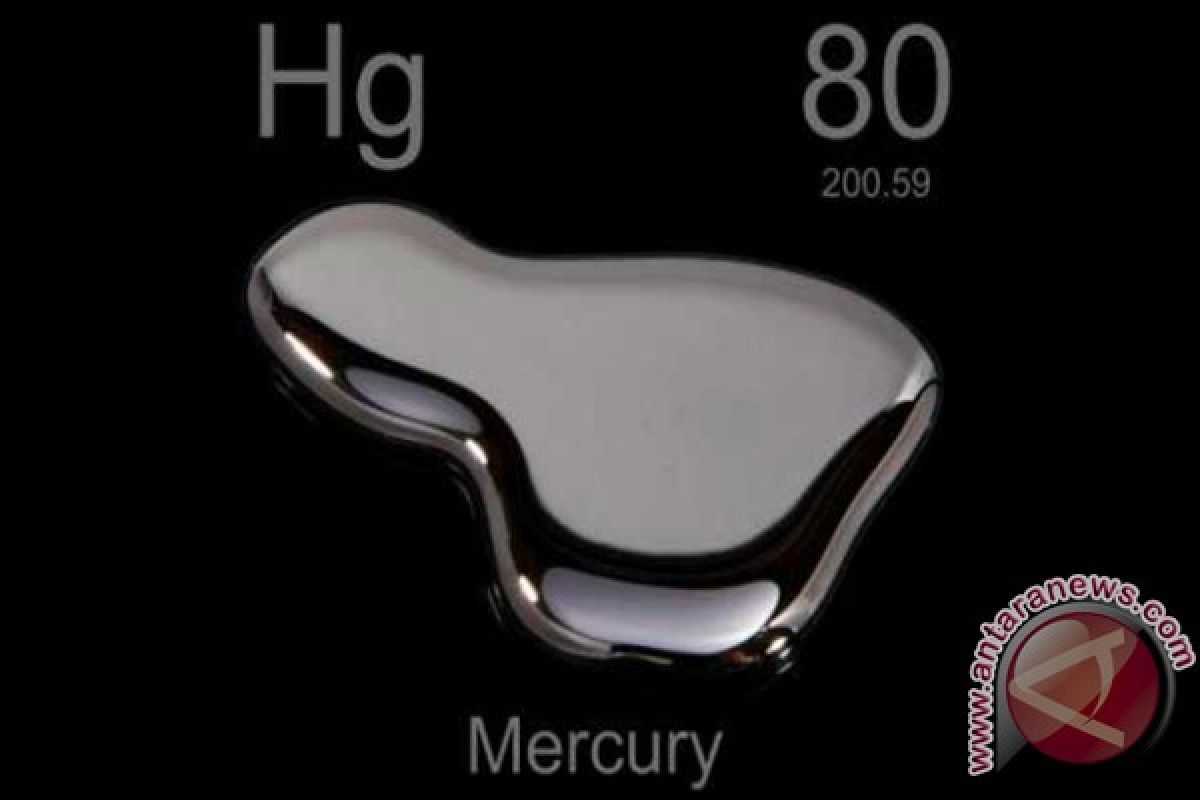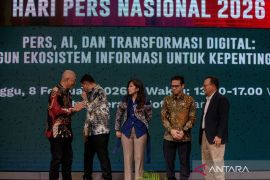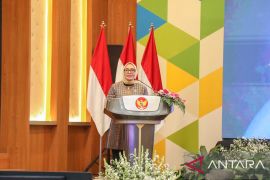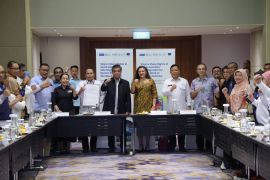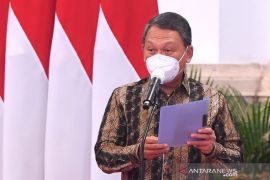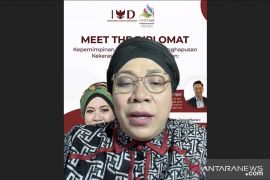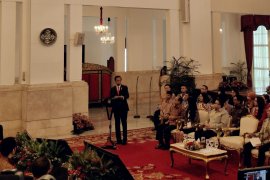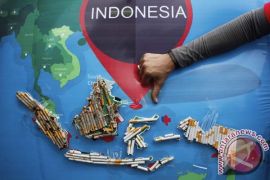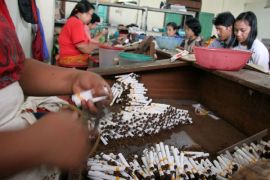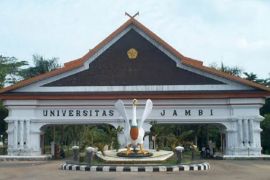The convention was conducted virtually from 1-5 November 2021 and will be held in the offline format in March 2022 in Bali.
The Minamata Convention could become a great opportunity for Indonesia to strengthen its role in improving the quality of human resources in the Asia Pacific and Southeast Asia regions by reducing and eliminating mercury use, observers said.
Indonesia has made a major commitment to reduce and eliminate the use of mercury. On October 13, 2013, in Kumamoto, Japan, the Indonesian government signed the Minamata Convention on Mercury, which aims to protect human health and the environment from the emission and release of mercury and mercury compounds due to human activities.
Four years after the signing, on September 20, 2017, the administration of President Joko Widodo, with the approval of the House of Representatives, issued Law Number II of 2017 concerning the Ratification of the Minamata Convention on Mercury.
Related news: COP-4 Minamata second phase scheduled on March 21-25 in Bali
The law was ratified based on the consideration of the Indonesian government’s objectives, as stated in the Preamble to the 1945 Constitution of the Republic of Indonesia: to protect the whole Indonesian nation and the entire native land of Indonesia and to advance the public welfare, to educate the life of the nation, and participate in the execution of world order, which is by virtue of freedom, perpetual peace, and social justice.
The law describes mercury as a chemical element with the symbol Hg. Mercury and mercury compounds are heavy metals that are very dangerous to health and the environment because they are toxic, persistent, bioaccumulate, and can move over long distances in the atmosphere, experts said.
With the help of bacteria in sediments and waters, mercury turns into methylmercury which is more harmful to health because it enters the food chain, they added.
In 2001, the United Nations Environment Program (UNEP) conducted a global study on mercury and mercury compounds and their impact on health, resources, transportation, distribution, and trade, as well as mercury prevention and control technologies.
Related news: Indonesia affirms environmental diplomacy role at COP-4
Based on that study, UNEP concluded that international efforts are necessary to reduce the risk of mercury's impact on human health and environmental safety.
To control the use of mercury globally, UNEP's Governing Council in 2009 passed Resolution 25/5 concerning the Establishment of the Intergovernmental Negotiating Committee (INC) on Legally Binding Instrument of Mercury, which aims to establish binding international rules on global mercury regulation.
During its preparation, Indonesia took an active role in the INC, starting from INC-1 in 2010 in Stockholm to INC-5 in 2013 in Geneva, which agreed to the substance of the convention and agreed to name the convention the "Minamata Convention on Mercury."
National Action Plan
To strengthen Indonesia’s role and contribution in reducing and eliminating the use of mercury, President Joko Widodo signed the Presidential Regulation on the National Action Plan for Mercury Reduction and Elimination (RAN PPM) in 2019.
According to the regulation, the National Action Plan for Mercury Reduction and Elimination includes strategies, activities, and targets for mercury reduction and elimination, which will be prioritized in the manufacturing, energy, small-scale gold mining, and health sectors.
The National Action Plan for Mercury Reduction and Elimination is being implemented from 2018 to 2030, with the 2018 RAN PPM serving as the primary data for measuring the success of the RAN PPM.
Related news: Minamata Convention offers solution to mercury-related problems
According to the Presidential Regulation, the mercury reduction strategy will be carried out through:
a. Strengthening commitment, coordination, and cooperation between related ministries or non-ministerial government agencies;
b. Strengthening the coordination of cooperation between the central and regional governments;
c. Establishment of information systems;
d. Strengthening community involvement through communication, information, and education;
e. Strengthening the commitment of businesses in reducing mercury use;
f. Application of environmentally friendly alternative technologies.
Related news: RI encourages inclusive agreement in COP-4 to Minamata Convention
Meanwhile, the mercury elimination strategy will include:
a. Strengthening commitment, coordination, and cooperation between related ministries or non-ministerial government agencies;
b. Strengthening the coordination of cooperation between the central and regional governments;
c. Capacity building of leadership, institutions, and human resources for the elimination of mercury;
d. Establishment of information systems;
e. Strengthening community involvement through communication, information, and education;
f. Application of mercury-free gold processing alternative technology;
g. Change of local community livelihoods; and
h. Strengthening law enforcement.
Related news: Combating mercury use in gold mining remains a challenge: ministry
Indonesia’s role
At the virtual opening of the Minamata Convention COP-4, the Minister of Environment and Forestry, Siti Nurbaya Bakar, as a representative of the Indonesian government, affirmed that Indonesia has made many efforts to deal with problems caused by the use and emission of mercury.
These efforts have been carried out by referring to the National Action Plan for Mercury Reduction and Elimination (RAN PPM), she added.
Since the implementation of RAN PPM, Indonesia has succeeded in reducing the use of mercury by 374.4 kg in the lighting and battery industry sector, cutting 710 kg of mercury emissions from the combustion of steam power plants that use coal as the energy source, and reducing 4,700 kg of mercury in the health sector, she informed.
Specifically for the Small-Scale Gold Mining (PESK) sector, through the ban on mercury in small-scale gold mining and the construction of non-mercury gold processing facilities, the amount of mercury used has been reduced to 12.4 tons, she noted.
According to Minister Bakar, this effort was also followed by a ban on the import and distribution of mercury to small-scale gold miners, developing more effective and economic gold processing technologies without mercury, as well as empowering the economy of the community based on local wisdom through efforts to change the livelihoods of miners.
Furthermore, to anticipate the challenges of mercury pollution in the future, Indonesia has also built a mercury laboratory and environmental metrology to support mercury reduction and elimination programs through testing and research, she said.
In the future, according to the Minister of Environment and Forestry, this laboratory facility will become one of the "centers of excellence of mercury" not only in Southeast Asia but also in the Asia Pacific.
It is hoped that with various holistic efforts that have been and will be carried out, the country can be free from mercury by 2030, she added.
According to the director-general of management of waste and hazardous toxic materials and the president of the Minamata Convention COP-4, Rosa Vivien Ratnawati, President Widodo is very concerned about efforts to protect human health and restore environments that have been polluted by mercury.
Related news: COP-4 host Indonesia serious about eliminating mercury use: official
The President stressed that these efforts must be carried out with quick action, especially since Indonesia is one of the countries that has signed and ratified the Minamata Convention.
Hosting the COP-4 Minamata Convention is a manifestation of President Widodo's message in the aspect of Indonesia's environmental diplomacy at the global level, Ratnawati said.
The presidency for COP-4 has opened the opportunity for Indonesia to propose supporting instruments that will complement mercury elimination efforts at the global level, she added.
Related news: RI drives declaration against illegal mercury trade at COP-4 Minamata
Indonesia will take advantage of this momentum by proposing a non-binding political declaration to invite all participating countries to work together in the fight against illegal global trade in mercury, she said.
This declaration has been named the 'Bali Declaration on Combating Mercury Illegal Trade' in Mercury, or the 'Bali Declaration'.
At the Asia-Pacific level, Indonesia took the lead in the proceedings as the president of the convention. It also did not stop mainstreaming the Bali Declaration proposal to all parties in the Asia Pacific and Southeast Asia regions.
Related news: Pertamina applies four approaches to support climate village program
Related news: Motor vehicles failing to pass emission tests to be fined
Editor: Fardah Assegaf
Copyright © ANTARA 2021
